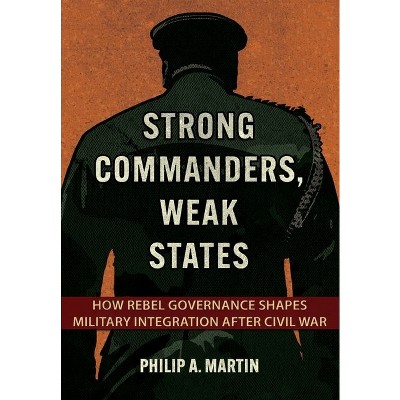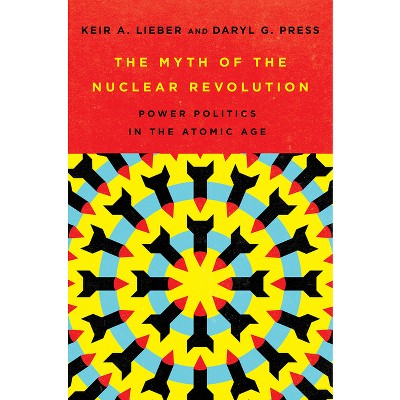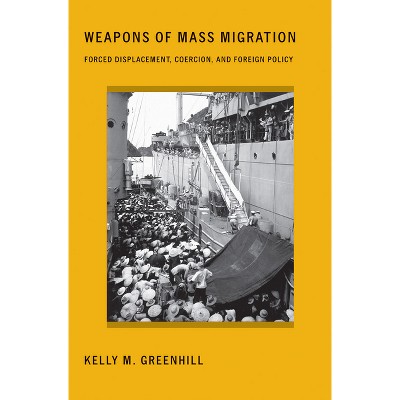Sponsored

Crucible of Beliefs - (Cornell Studies in Security Affairs) by Dan Reiter (Paperback)
In Stock
Sponsored
About this item
Highlights
- How do foreign policymakers learn from history?
- About the Author: Dan Reiter is Samuel Candler Dobbs Professor of Political Science at Emory University.
- 264 Pages
- Political Science, Security (National & International)
- Series Name: Cornell Studies in Security Affairs
Description
About the Book
How do foreign policy-makers learn from history? When do states enter alliances? Beginning with these two questions, Dan Reiter uses recent work in social psychology and organization theory to build a formative-events model of learning in international politics.
Book Synopsis
How do foreign policymakers learn from history? When do states enter alliances? Why have some small powers chosen to enter alliances whereas others have stayed neutral? In Crucible of Beliefs, Dan Reiter uses work in social psychology and organization theory to build a formative-events model of learning in international politics. History does inform the decisions of policymakers, he suggests, but it is history of a specific sort, based on firsthand experience in major events such as wars.
Tested against balance-of-threat theory, the leading realist explanation of alliance behavior, Reiter's formative-events model of learning emerges as a far better predictor of states' decisions. Crucible of Beliefs shows that, contrary to balance-of-threat theory, state leaders ignore the level of international threat and focus instead on avoiding past mistakes and repeating past successes. A serious blow to realism, these findings demonstrate that to understand the dynamics of world politics, it is essential to know how leaders learn from history.
Review Quotes
In all, Crucible of Beliefs is a provocative, well-crafted, insightful, and informative work. Reiter is meticulous in developing and testing his theory; he is attentive to potential problems that would inhibit his findings. Furthermore, the prose is crisp and clear, chock full of illustrative anecdotes and examples. An additional strength of the work is its focus on small states-the most numerous members of the inter- national system, yet the least studied
-- "American Political Science Review"On the basis of its clarity, elegance, and predictive power, Reiter's learning theory is an unqualified success that must be taken seriously and addressed by anyone studying the alliance behavior of small powers.
-- "Political Science Quarterly"Reiter develops a comprehensive set of hypotheses and variables for the case studies.
-- "Millennium"This exceptionally well-written book sets out to explore question in the study of international politics: how do national leaders learn from history?
-- "International History Review"About the Author
Dan Reiter is Samuel Candler Dobbs Professor of Political Science at Emory University. He is the author of How Wars End, coauthor of Democracies at War, and editor of The Sword's Other Edge.











